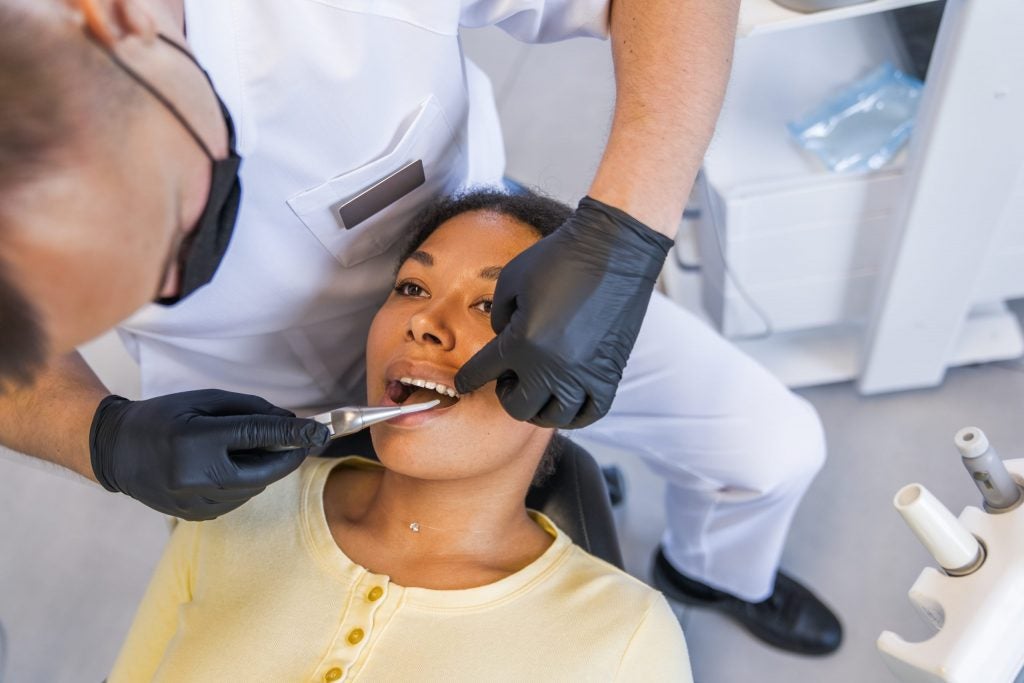
Pericoronitis is a dental infection that occurs around the gum tissue surrounding a partially erupted tooth, typically a wisdom tooth. It’s a common condition that can cause significant discomfort and pain if left untreated. In this article, we’ll explore the causes, symptoms, and treatment options for pericoronitis, as well as provide tips for prevention and management by the dental services provider.
What is pericoronitis?
Pericoronitis is a dental infection that occurs when the gum tissue surrounding a partially erupted tooth, typically a wisdom tooth, becomes inflamed and infected. This condition is characterized by pain, swelling, redness, and pus around the affected tooth, and can be acute or chronic in nature. The infection occurs in the gum tissue that covers the partially erupted tooth and can lead to more severe complications if left untreated.
What causes pericoronitis?
Pericoronitis occurs when bacteria accumulate in the gum tissue surrounding a partially erupted tooth, leading to infection and inflammation. The most common causes include:
- Poor oral hygiene
- Food particles and debris accumulation
- Trauma or injury to the gum tissue
- Wisdom teeth impaction
What are the symptoms of pericoronitis?
The symptoms of pericoronitis can range from mild to severe and may include:
- Tender and painful gum tissue around the affected tooth
- Swollen gum tissue that may be red and inflamed
- Redness and inflammation of the gum tissue
- Pus or discharge around the affected tooth
- Elevated body temperature
- Unpleasant taste and bad breath
- Pain when opening the mouth or difficulty opening it wide
- Swollen lymph nodes in the neck or jaw
- Tender and painful gums when touched or pressed
- Bleeding gums when brushing or flossing
- Unpleasant metallic taste in the mouth
- Pain or discomfort when swallowing
- A painful abscess or pocket of pus in the gum tissue
- Sensitivity to hot or cold temperatures
- Feeling unwell or having a general sense of discomfort
How is pericoronitis treated?
Here is a comprehensive treatment plan for pericoronitis:
Mild cases:
- Antibiotics: To clear the infection
- Pain relief: Over-the-counter pain medication to manage discomfort
- Warm salt water rinses: To reduce swelling and ease pain
- Good oral hygiene: Gentle brushing and flossing to maintain oral health
Moderate cases:
- Debridement: Removal of dead tissue and bacteria
- Irrigation: Flushing the area with an antibacterial solution
- Antibiotics: To clear the infection
- Pain relief: Prescription pain medication to manage discomfort
- Warm salt water rinses: To reduce swelling and ease pain
Severe cases:
- Surgical drainage: Incision and drainage of the abscess
- Tooth extraction: Removal of the affected tooth
- Gum surgery: Surgical repair of damaged gum tissue
- Antibiotics: To clear the infection
- Pain relief: Prescription pain medication to manage discomfort
How to prevent pericoronitis?
Here are some ways to prevent pericoronitis:
- Brush and floss regularly: Remove bacteria and food particles from teeth and gums.
- Use antibacterial mouthwash: Kill bacteria and reduce inflammation.
- Visit your dentist regularly: Catch problems early and prevent infections.
- Maintain a healthy diet: Avoid sugary and acidic foods that contribute to tooth decay.
- Avoid smoking and tobacco: Tobacco use increases the risk of pericoronitis.
- Clean your tongue: Remove bacteria and freshen your breath.
- Use a Waterpik: Remove plaque and debris from between teeth.
- Monitor wisdom teeth eruption: Keep an eye on wisdom teeth as they erupt.
- Avoid piercing your tongue or lips: Reduce the risk of bacterial infection.
- Get enough sleep: Reduce stress and promote overall health.
- Manage stress: High-stress levels can lead to teeth grinding and clenching.
- Use a fluoride toothpaste: Strengthen teeth and prevent decay.
Final note
Pericoronitis is a common dental infection that can cause significant discomfort and pain if left untreated. By understanding the causes, symptoms, and treatment options, you can take steps to prevent and manage this condition. Remember to maintain good oral hygiene practices, visit your dentist regularly, and seek treatment if you experience any symptoms of pericoronitis.